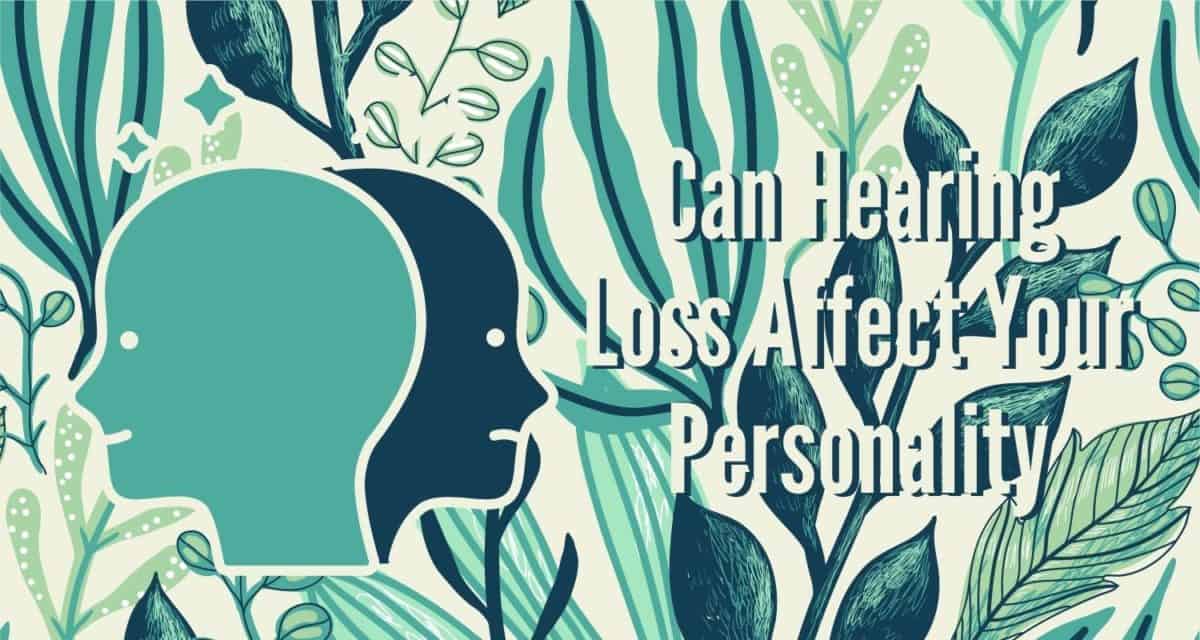Your Phonak hearing aid at unbeatable prices!

Can Hearing Loss Affect Your Personality
Hearing loss affects some 432 million adults around the world today. While some people experience hearing loss earlier in life—in fact, about 17% of Gen-Z has measurable hearing loss—most people will not experience problematic hearing loss until around or after retirement age. About one-third of those age 60–69 have hearing loss, while two-thirds of those over 70 have it. Nearly 100% of centenarians have hearing loss, suggesting that we’ll all experience it if we only live long enough.
Many of us may think of hearing loss as an annoying but relatively benign aspect of getting older. We imagine that with a few simple adjustments, we can learn to live with hearing loss. In fact, study after study conducted in the last few decades confirms that age-related hearing loss can have deep, lasting, negative impacts on our general health and well-being.
Hearing Loss Can Affect Your Personality
Helen Keller once observed that blindness cuts a person off from things, while deafness cuts them off from people. When children are born with hearing loss, they develop their young brains around it. By the time they reach maturity, they have established ways of living that account for their hearing loss, and they can live relatively normal, well-adjusted lives.
When we start to experience age-related hearing loss, our personalities are in place. Our lives seem relatively fixed to us. We have families, jobs, and a way of looking at the world that is not likely to change. When hearing loss enters this scenario, we may feel that our identity is being taken away from us. Many people experience an “identity crisis.”
While some people may take hearing loss in stride, others may go through the five stages of grief—denial/isolation, anger, bargaining, depression, and finally acceptance. Those who are less upset at hearing loss will be more likely to accept help and start wearing hearing aids right away. Different personalities will experience the onset of hearing loss differently, but the most important thing is to offer support that can be accepted whenever the person is ready.
Grief and Hearing Loss
Hearing healthcare and medical professionals frequently witness the denial, isolation and anger that those who are new to age-related hearing loss can go through. It is common for someone who is starting to experience hearing loss to refuse amplification, or to become withdrawn. Hearing loss makes it difficult to keep up with conversations, making social engagements exhausting and less enjoyable. Over time, people tend to shy away from social gatherings and keep more to themselves.
In the earliest stage of grief, family members and hearing healthcare professionals can be of great help. Those new to hearing loss will need to learn a new way of staying involved in family and social activities, and gentle encouragement to accept the help they need in the form of hearing aids.
When a person moves on to bargaining, it may seem like they are “looking on the bright side,” devaluing activities they used to enjoy, or finding reasons to insist their hearing loss isn’t a big deal. A person might say any of the following things during the bargaining stage of grieving their hearing ability:
- “I may be losing my hearing, but at least my overall health is good.”
- “I’m not worried about losing my hearing—I was never a big fan of music.”
- “My bad hearing makes it harder to travel, but I’m too old to be running around like that, anyway.”
At the depression stage, a person might be teary-eyed, or cry more easily than normal. Slower responses, changes in weight, and different sleeping patterns are also clues that a person is going through depression. They may pay less attention to hygiene than they did before, shaving less or looking disheveled. If you think a loved one may be depressed, ask them how they’ve been feeling. While you may be inclined to worry more about your loved one if they are depressed, it is thought that this can be a positive sign. It means they are really allowing themselves to experience the change in their life that has occurred.
Acceptance may not mean that someone becomes “happy” about their hearing loss, but they will no longer allow it to interfere in their relationships and day-to-day life. Acceptance means learning to live with hearing loss, and getting a set of hearing aids is an important step in that process. If someone does not seem to be moving toward acceptance, they may need some additional support in the form of therapy or a support group.
